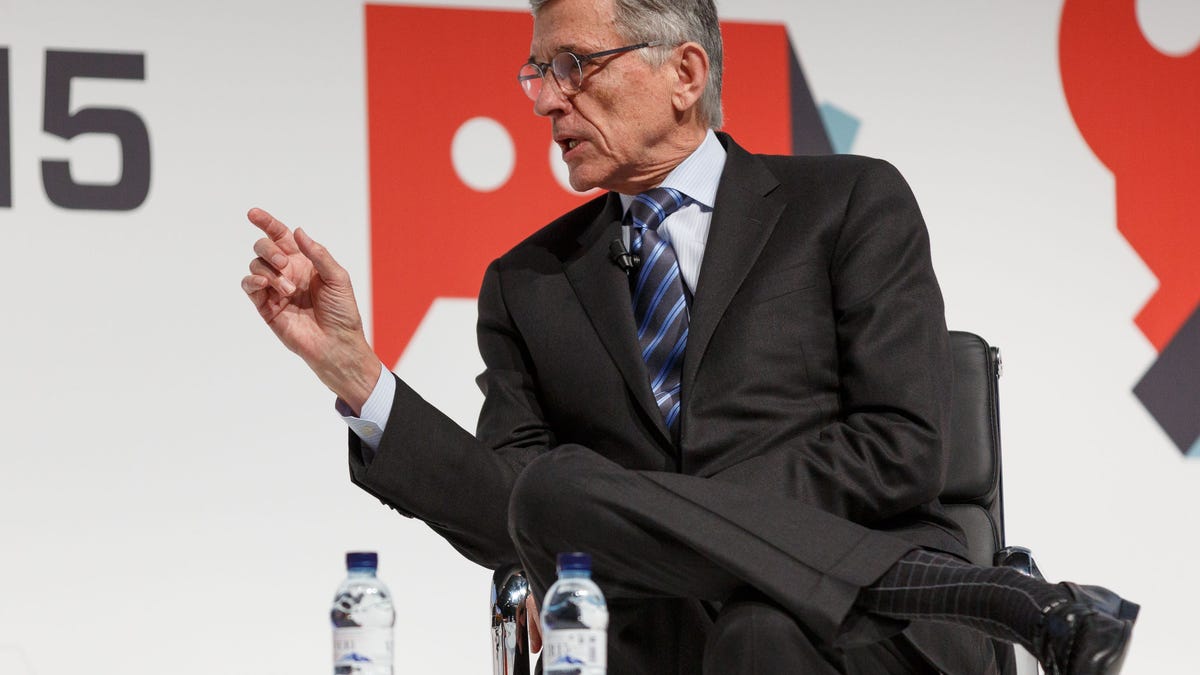FCC's internet privacy proposal just got a little weaker
The agency backs away from imposing stricter data collection rules on broadband and wireless companies than on Facebook, Twitter and Google.

FCC Chairman Tom Wheeler has revised his much criticized proposal for ensuring consumers' data is protected online.
The push and pull continues on how much the FCC will be able to safeguard your privacy on the internet.
In a major shift in policy, Federal Communications Commission Chairman Tom Wheeler eased back in his proposal for regulating privacy practices of internet service providers to keep them in line with the less restrictive approach of the Federal Trade Commission.
Blame pushback from broadband providers for the shift.
The FCC's proposal may still end up imposing the strongest set of privacy regulations ever for the companies that deliver fast internet service to you. But the rules came under fire when they were introduced in March because they didn't apply to companies such as Amazon, Facebook and Google, which also collect and share customer information with advertisers and which are subject to rules imposed by the FTC.
"The problem is," Wheeler said in a statement Thursday, "there are currently no rules in place outlining how ISPs may use and share their customers' personal information."
Critics said having two different privacy standards could confuse consumers and hamstring broadband and wireless providers trying to get into the advertising market to compete against Google and Facebook.
In fairness to the FCC, the agency doesn't regulate those Internet companies. But critics called on it to adopt a similar framework to the FTC to ensure consistency.
The FCC also finds itself caught between competing commandments.
It is required to write the new rules following the passage of its Open Internet order last year, which reclassified broadband as a "common carrier" telecom service. Because of this change, which was upheld by a federal appeals court earlier this year, the FCC must regulate privacy concerns rather than the FTC.
In the initial proposal, the FCC planned to impose a strict "opt in" requirement, which meant internet service providers would have to get consumers' permission before collecting any data from them.
A sensitive subject
The new proposal follows the FTC's approach, which only requires companies to obtain explicit consent before using "sensitive" data such as geolocation or financial information. It also ensures that consumers will not be penalized if they choose to opt out of data collection.
What does this mean for consumers? The FCC claims the new rules will protect your data from security breaches and vulnerabilities and will also give you a choice in how your information is used for things such as advertising and marketing.
The agency has also expanded the definition of sensitive data to include things such as information about what websites you visit, which supporters of the proposal say is important. But this difference in definition could still be a point of contention for internet service providers, which may find it too restricting.
"There's been a lot of lobbying on this matter from cable monopolies and internet giants alike," Gaurav Laroia from Free Press said in a statement. "Thankfully, it looks like the FCC proposal defines sensitive data broadly, and doesn't follow the ISPs' entirely unworkable and invasive suggestion that the FCC should protect visits to some kinds of websites but not others."
Groups that vigorously opposed the FCC's original proposal, though, argue that the revisions still don't ease up enough.
"We are concerned ... that the commission, which has no expertise with regard to determining the content of speech, is now attempting to redefine what consumers may regard as sensitive," Walter McCormick, president of the USTelecom advocacy group, said in a statement.
The NCTA-The Internet and Television Association, which represents cable providers, is also still critical of the FCC's new proposal. In its statement, it said that the FCC still hasn't fully embraced the FTC's approach to privacy regulation, which it claims still sets up inconsistencies in privacy regulation online.
The proposal will be voted on at the FCC's October 27 meeting.

